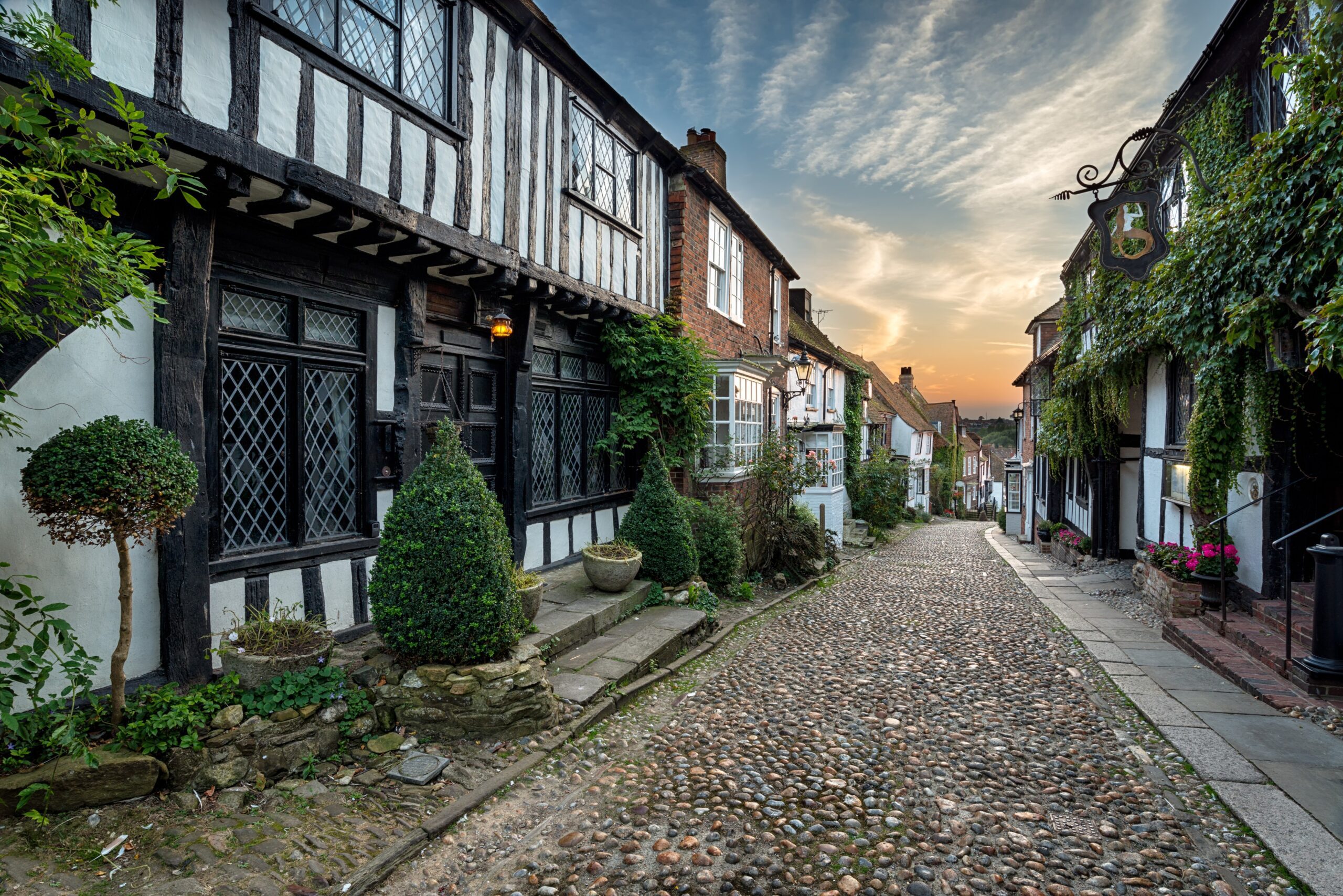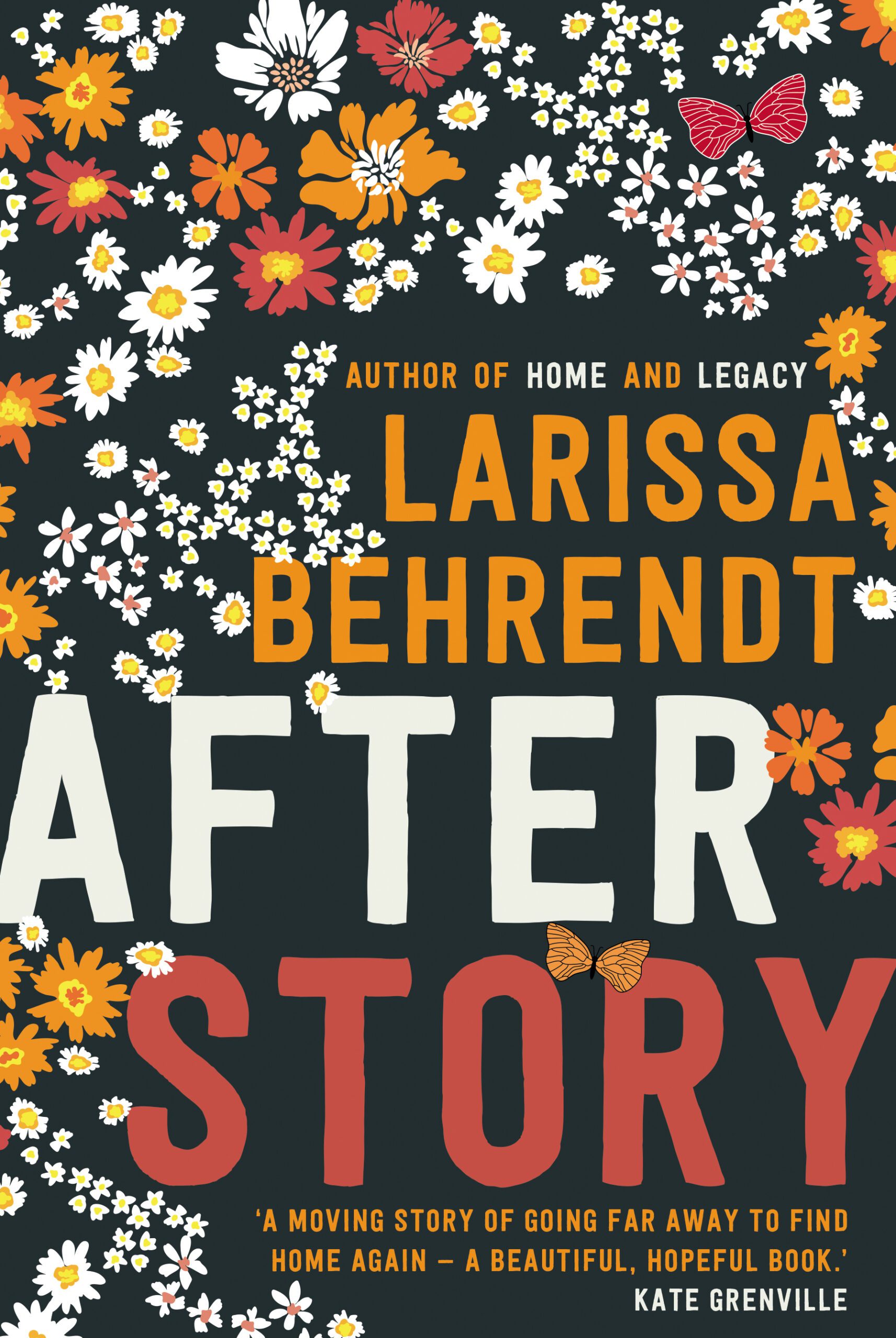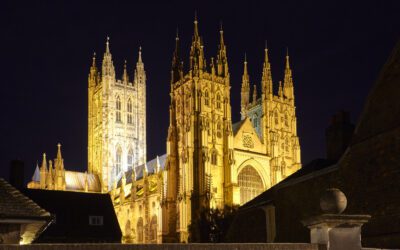Featured image: Larissa Behrendt’s novel “After Story” takes us to literary hotspots across England| Photo from Envato by flotsom
Set in Australia and England, “After Story” is a journey about finding the way forward
by Sally Jane Smith, JourneyWoman Book Club Co-host
When Indigenous lawyer Jasmine decides to take her mother, Della, on a 10-day tour of England’s most revered literary sites, she hopes it will bring them closer together and help them reconcile the past. With them, they carry one neatly packed suitcase (the daughter’s), one over-stuffed bag of jumbled belongings (the mother’s), and more emotional baggage than anyone should have to bear.
Sharing travel with a sister, mother or daughter can be both a joy and a trial, especially for those of us used to the independence of going solo. It can also be a rite of passage, revealing new facets of lifelong relationships. During this journey, the author unwraps the imperfections, vulnerabilities and subtleties of her characters, uncovering long-kept secrets and finding a way forward in love and hope.
In After Story, a young girl is taken from her small-town home, an event that pulls her family into a horrifying new reality of grief and blame – aggravated by the prejudices they face as Indigenous Australians. However, After Story is more about a family that weathered trauma than it is about solving a crime. These are not, Della tells us, people who talk about how they feel. Mothers, daughters and sisters flounder in a sea of regrets, frustrations and miscommunication. Nevertheless, sisterhood emerges again and again as the one craggy constant in these unpredictable waters.
Like Della and Kiki, like Jasmine and Leigh-Anne, many of us spar with our siblings over long-past resentments or fresh irritations, but our sisters are often also our anchors: the ones who get where we come from as no one else can, who have our backs when no one else will, who have the power to reduce us to fits of laughter with a single sideways glance. Ambitious and engrossing, After Story celebrates the extraordinary power of words, the quiet spaces between while mourning the ‘vast cost of their colonial transplantation’. We can be ready to listen, but are we ready to hear?
“Behrendt is able to both celebrate the power of Shakespeare’s or Brontë’s art and mourn the vast cost of their colonial transplantation. She suggests that a Eurocentric “culture” divides everyone – including Europeans – from culture. Literature’s “ideas and ideals” both drive and damage us, an illusory yardstick with which to beat ourselves. Yet this is also a love letter to books as technologies of change, that help us “understand where bias and prejudice hide [and] create a new way of thinking”. — The Guardian
About the Author of After Story
Larissa Behrendt is an award-winning author of both fiction and non-fiction, a filmmaker who has won awards for her work in television series and film documentaries, radio host, lawyer, and Distinguished Professor at the University of Technology Sydney. She is an Euahleyai / Gamillaroi woman whose work in the fields of Indigenous education, law and the arts has been recognised with an Order of Australia medal, as well as a Human Rights Medal awarded by the Australian Human Rights Commission. She was named NAIDOC* Person of the Year in 2009 and NSW Australian of the Year in 2011.
The screen rights for After Story have been acquired by Jungle Media.
(Source: https://www.larissabehrendt.com.au/about/)
* National Aborigines and Islanders Day Observance Committee
Read More: 10 Great Books With Books at Their Heart
Book Club Discussion Questions: After Story
1. The story is set mainly in England, with some scenes in regional Australia. Have you ever travelled in either of these countries? Did the settings feel familiar to you from your own travels?
2. What was your favourite passage in the book, and why?
3. The novel’s flashback scenes are set in a small Australian community that functions in some ways like an extended family, with children wandering freely in and out of neighbourhood homes, sharing toys between households and playing in the streets. Does this resonate with memories of your own childhood, or of bringing up your children
4. Despite Kiki’s initial refusal to look after Della’s pets, both sisters know she’ll take care of the animals. Do you have the kind of lifestyle where you can simply pack a bag and go, or do you need to find someone to look after pets and other responsibilities? Has this affected your freedom to travel?
5. Have you ever travelled together with a close female relative, as adults? Did you find you related differently to each other on the road than you do at home?
6. Did the author’s use of alternating chapters written from the two main protagonists’ points of view tell you anything about their relationship or their different experiences of travel?
7. Have you ever gone on a multi-day group tour like the one in the book? What were the pros and cons of the experience, compared with travelling alone?
8. Does the idea of a literary tour appeal to you? If you were planning a literary itinerary, where would you go?
9. If you have been on a coach tour, were any of your companions similar to the archetypal characters from the fictional tour group in the story?
10. How would you describe the different ways Jasmine, her friend Bex, and her sister Leigh-Anne use social media? Do you like to share travel impressions on Facebook or Instagram when you are away from home?
11. Were you familiar with any of the English landmarks in the story?
12. Who was your favourite character in the book, and why?
13. Larissa Behrendt is an Indigenous Australian. Can you recommend any other books by First Nations authors?
14. Did the book give you any insight into issues that affect Aboriginal people in Australia?
15. Have you read works by any of the authors discussed in the novel?/
16. Did the book make you want to learn more about England?
Read More: Sign up for our book club newsletter here
More on the United Kingdom
Thinking About Train Travel? Expert Tips from the Man in Seat 61
Train travel tips and advice from Mark Smith, the Man in Seat 61, to plan and prepare for train travel just about anywhere.
Solo Travel Deals: Save up to $4,000 With Trafalgar, Insight and Brendan Vacations
Book by May 30 with the Seasonal Travel Sale from our Women’s Travel Directory partners Trafalgar Travel, Insight Vacations and Brendan Vacations.
Canterbury for the Curious: Martyrs, Miracles and Myths
With its ancient history and famous Cathedral, Canterbury, in Kent, has inspired pilgrimages, myths and stories for centuries.







0 Comments
We always strive to use real photos from our own adventures, provided by the guest writer or from our personal travels. However, in some cases, due to photo quality, we must use stock photography. If you have any questions about the photography please let us know.
Disclaimer: We are so happy that you are checking out this page right now! We only recommend things that are suggested by our community, or through our own experience, that we believe will be helpful and practical for you. Some of our pages contain links, which means we’re part of an affiliate program for the product being mentioned. Should you decide to purchase a product using a link from on our site, JourneyWoman may earn a small commission from the retailer, which helps us maintain our beautiful website. JourneyWoman is an Amazon Associate and earns from qualifying purchases. Thank you!
We want to hear what you think about this article, and we welcome any updates or changes to improve it. You can comment below, or send an email to us at [email protected].